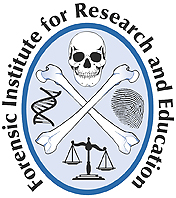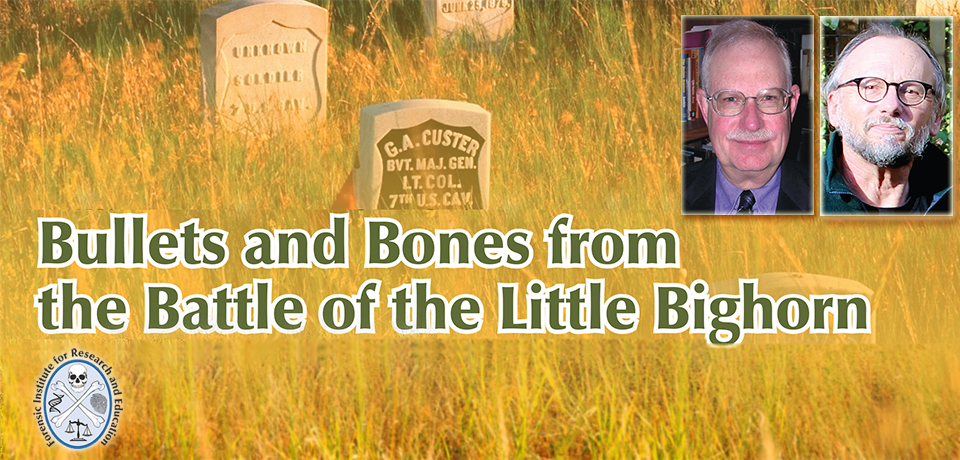If your knowledge of one of the most studied conflicts in U.S. military history, the Battle of the Little Bighorn, has come from movies, paintings and songs, it’s time to get the facts.
A pair of forensic scientists who’ve studied the 1876 clash on the shores of the Little Bighorn River in south central Montana will visit MTSU on Thursday, March 27, with the archaeological evidence that tells a more complete story.
Drs. Douglas D. Scott and P. Willey are the spring 2014 speakers for MTSU’s William M. Bass Legends in Forensic Science Lectureship. Their talk, “Bullets and Bones from the Battle of the Little Bighorn,” is set for 6:30 p.m. March 27 in the Tennessee Room of MTSU’s James Union Building.
The lecture is free and open to the public, and parking will be available in the Bell Street Lot across the street from the JUB. A searchable campus map with parking details is available at http://tinyurl.com/MTSUParkingMap13-14.
MTSU’s Forensic Institute for Research and Education, or FIRE, is sponsoring Scott and Willey’s free public lecture. The Bass Lecture Series, named for renowned University of Tennessee forensic anthropologist Dr. Bill Bass, brings respected forensic-science experts to campus each fall and spring.
Scott and Willey will explain how the archaeological evidence at the Little Bighorn site, where Gen. George Custer’s 7th Cavalry Regiment was soundly defeated by the warriors of the Lakota, Northern Cheyenne and Arapaho tribes, reveals the weapons used and equipment carried and the locations where the men fought and died. Their bones have helped the investigators understand their true ages, heights and illnesses and how they died.
Scott, a forensic archaeologist often called “battlefield archaeology’s founding father,” is an adjunct professor with the Department of Anthropology at the University of Nebraska–Lincoln and at Colorado Mesa University in Grand Junction.
He is a National Park Service retiree with more than 30 years of service, including his final post as Great Plains team leader for the Midwest Archeological Center in Lincoln, Neb.

Dr. Douglas Scott

Dr. P Willey
Scott received the Department of the Interior’s Distinguished Service Award in 2002 for his research at the Little Bighorn Battlefield National Monument. He has also been involved with human rights and forensic investigations since the early 1990s.
Willey, a physical anthropologist who specializes in human skeletal remains and historical medical anthropology, is a professor at California State University-Chico. Before joining that faculty, he curated the Bass skeletal collection at the University of Tennessee.
His research interests include human skeletons, especially those resulting from battles, along with footprints left by prehistoric cavers and illnesses suffered by the 7th Cavalry in the post–Civil War period. He has written more than 90 publications on those and other subjects.
Among his many affiliations, Willey has been a consultant to the Joint POW/MIA Accounting Command’s Central Identification Laboratory in Honolulu, Hawaii, the largest skeletal identification laboratory in the world, since 1997.
 The Little Bighorn battle site was first preserved as a U.S. national cemetery in 1879 to protect the graves of the 7th Cavalry troopers. In 1946, it was redesignated as the Custer Battlefield National Monument, but it took another 45 years to acknowledge the Native American sacrifices made there when the site was renamed the Little Bighorn Battlefield National Monument.
The Little Bighorn battle site was first preserved as a U.S. national cemetery in 1879 to protect the graves of the 7th Cavalry troopers. In 1946, it was redesignated as the Custer Battlefield National Monument, but it took another 45 years to acknowledge the Native American sacrifices made there when the site was renamed the Little Bighorn Battlefield National Monument.
FIRE’s co-sponsors for Scott and Willey’s lecture are the MTSU Distinguished Lecture Fund, the College of Liberal Arts, the Department of History and the Middle Tennessee Forensic Science Society.
In addition to the Bass lecture series, MTSU’s FIRE, established in 2007, provides regular educational and training opportunities for law enforcement, medical examiners, coroners, attorneys, social workers, and other groups in forensic science and homeland security. FIRE also sponsors the popular CSI:MTSU camp for high school students each summer.
For more information on the Bass lecture series, please contact the FIRE offices at 615-494-7713 or visit www.mtsu.edu/fire. You can watch an excerpt from the March 27 lecture below.
— Gina E. Fann (gina.fann@mtsu.edu)



COMMENTS ARE OFF THIS POST